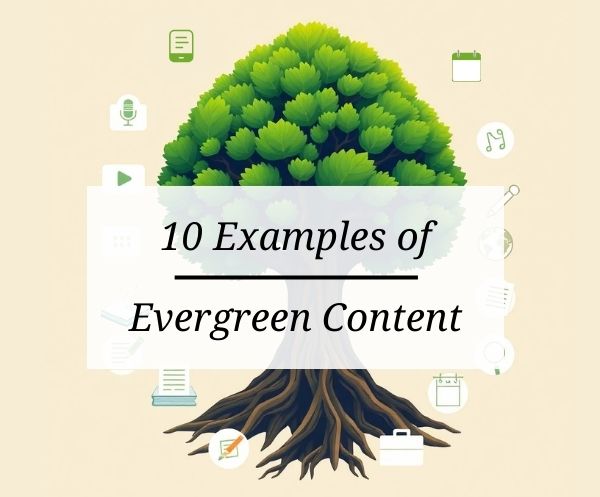“You can’t just ‘SEO’ your website and be done. It’s a forever moving goal post.” — Stoney deGeyter
SEO is a lot more than the words you typed in a search engine, commonly known as “keywords”.
Search analysis is one of the most important, valuable, and highly profitable activities in the field of search engine marketing and optimization. By doing the right kind of analysis, not only we discover words and phrases to target with SEO, but we also learn more about our customers as a whole.
For the purposes of this guide, I will divide the process of search analysis into three main steps:
- Research
- Analyze
- Target
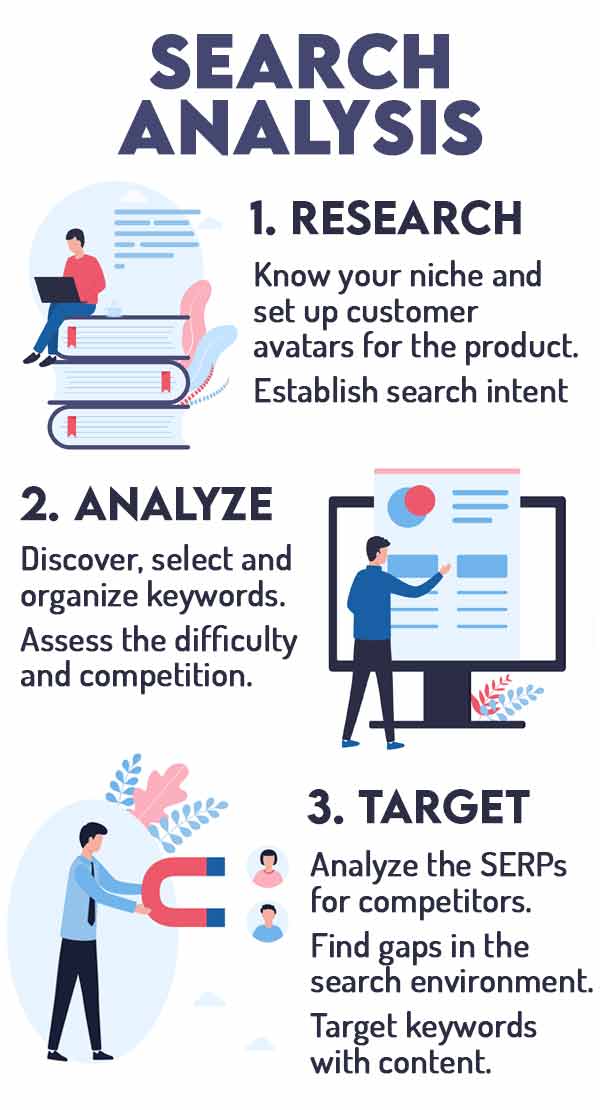
1. Research your niche
The first step is to make sure we know our target niche. This is the specific market audience that encompasses a specific sector or topic and that offers monetization opportunities available to our business.
“Content is king,” means that we don’t need to bother with backlinks if we have a solid content strategy and a clearly defined search intent. This is important to consider when writing content so that the target audience will find our information relevant to what they are searching.
High-quality content will not necessarily outrank the competition if it doesn’t match the target audience’s search intent.
The search intent is what the user expects to find when they search for something on a search engine, regardless of the specific words they used. A few types of search intent are: Informational, navigational, transactional, and commercial.
Search queries can be specific or broad. Queries are categorized by length as long-tail keywords and short-tail keywords.
The first step of search analysis is to find out what the search engine (i.e. Google) is currently ranking in the SERPs (results pages) and identify a search need that we can satisfy with content. This will help us target the right keywords later on.
2. Analyze search queries
The second step of our search analysis plan is to dive into the keyword tools to discover and compare sets of keywords. The starting point will depend entirely on the niche and audience. Ideally, we would have already defined a customer avatar and have some ideas for content based on the monetization strategy (product or service).
Google autocomplete
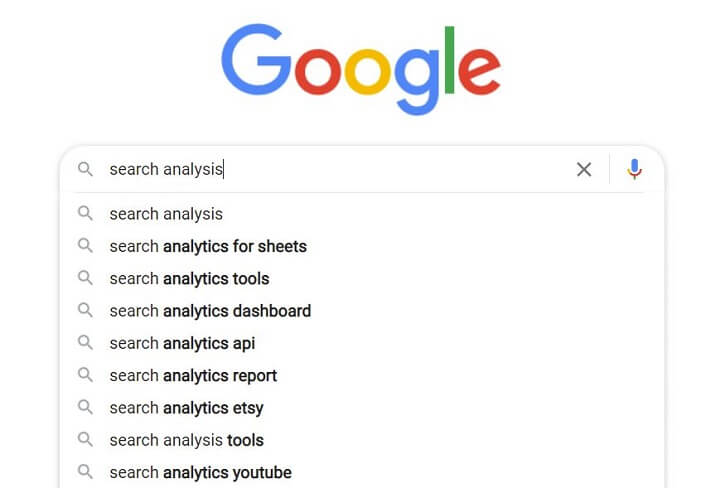
Typing a keyword in the Google search bar typically displays ten related keywords. This is a good start. Depending on the niche, we may use other search bars as YouTube, Pinterest, DuckDuckGo, or even Facebook.
Keyword Planner tool
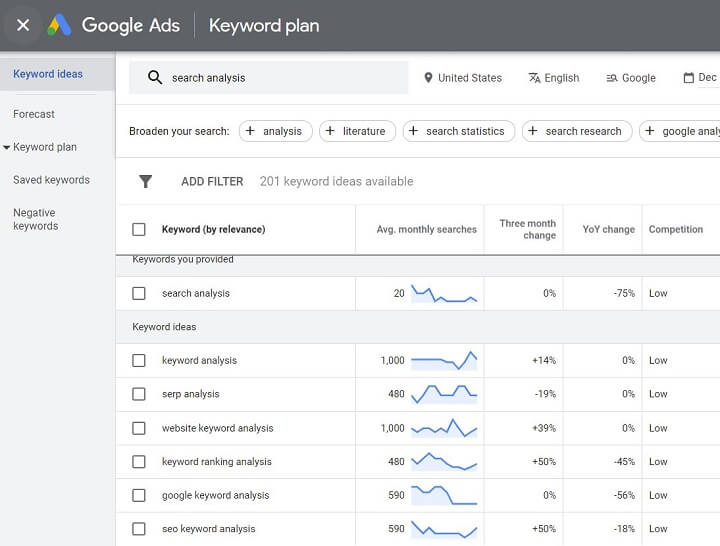
This free tool is part of the Google Ads environment, recommended by Google specialists, and the most used for SEM campaigns. The Keyword planner allows us to discover and organize keywords, obtain the most accurate trends, historical data, and search volumes of individual keywords.
Ahrefs Keyword explorer
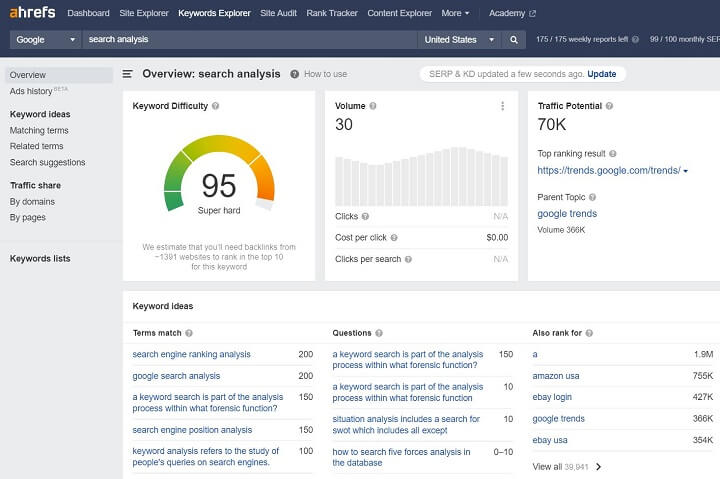
This tool is best used in combination with the Keyword planner, it displays search volume estimates and real-time SERP results with site stats by domain. Keyword explorer is a paid tool which provides keyword ideas and question-like keywords, plus a “keyword difficulty” metric which, as opposed to the “competition” metric, doesn’t refer to paid search results but rather to organic search results.
The next step is to set up a spreadsheet with an initial set of keywords, sorting them by difficulty/competition and search volume. Filter out any irrelevant keywords, as well as those with very low volume or high difficulty.
3. Target keywords
Before deciding which specific keywords to target for content creation, it’s vital to assess and understand our competition. Focusing on the wrong keywords can become an uphill battle which leads to months or even years of wasted efforts. That is why it is so important that we understand our user’s intent and how the current results (our competitors) are fulfilling that need.
It is not necessary to read each and every article, but it is necessary to get an idea of what they are talking about.
Once we find a gap in the search environment, such as a relatively short-tail query ignored by the competition, we can start our content plan around that keyword.
In conclusion
What is search analysis? It is the process of discovering the intent behind the user’s search behavior, analyzing the competition, and finding the best gap in the SERPs to easily rank a piece of web content.
Proper SEO is more than just finding keywords and creating content around them. If the final piece of information does not solve, answer, or match the user’s intent, then our search analysis wasn’t effective.
Continue your journey in user-focused SEO with my guide on how Site Search Analysis (SSA) serves as the compass for understanding user intent.
If you need help starting with your SEO plan or are lost finding ideas for your content, get in touch with me for a personalized search analysis consultation.



